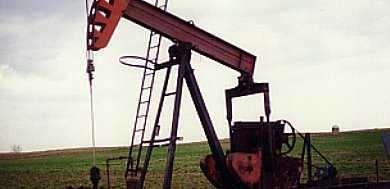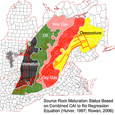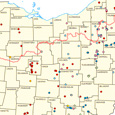Is your mineral lease outdated or ‘inadequate?’ There may be options
Thursday, November 10, 2011

WOOSTER, Ohio — Landowners whose gas and mineral rights are already leased to an energy company may be surprised to learn there are options for negotiating a new lease, based on the recent developments in the shale gas industry.
“Most landowners don’t contemplate that they can do anything,” said Matt Oberholtzer of Oberholtzer & Oberholtzer, an attorney with many years handling gas leases. “There may or may not be; it depends on the terms of the lessee; it also depends on if the lease was accurately and properly executed.”
For many leases, the terms were agreed to decades ago, some as far back as the early 1900s. Much has changed since then, especially with regard to drilling technology and market conditions. With improvements in hydraulic fracturing and deep horizontal drilling, shale gas has created a new and viable market.
New era, new terms
That means the potential for more profit — often several thousand dollars more per acre than landowners originally signed for, plus the potential for new royalties. However, the financial incentive is just part of the reason to re-evaluate an old lease.
The new method of drilling also brings new concerns about the environment and property usage that often were not known about or accounted for in leases made prior to the shale gas boom.
Clark Sprang, vice president of the Mohican Basin Landowners group, estimates about 40 percent of the 100,000 or so acres entered into the group is bound by an existing lease, mostly to Columbia Gas.
“They are unsatisfactory in terms of protection of our land and our water because of the new technology for drilling these big horizontal wells,” he said.
The landowner group wants to amend and revise the leases, partly to negotiate for more money, but also “in order to provide the landowner with adequate protection against damages to land and water,” Sprang said.
Still in effect
Although many leases are old, unless some type of legal action was taken or the dates have expired, they’re most likely still in effect.
“Unless a legal action was taken, those leases are still good,” said Ohio Farm Bureau Federation’s Dale Arnold, at a recent shale gas presentation.
In Ohio, a popular option for having an old lease terminated is Ohio’s Dormant Minerals Act. The act allows landowners to dissolve the lease on their property in certain cases where the lessee (energy companies) have not conducted activity on the property for 20 or more years.
The policy includes contacting the energy company in writing, to inform them of the landowner’s intent to dissolve the lease on the basis of dormancy. Working with a qualified attorney is strongly recommended.
“A good attorney can take you through that process and have those old nonperforming leases lifted,” Arnold said. “After that you are free and clear” to make new decisions with another developer.
The Dormant Minerals Act was a hot topic at the Farm Science Review in September. Ohio State University ag law director Peggy Kirk Hall said the process, if applicable to the lease, can terminate an existing agreement using statutes found in Ohio law.
Ohio State’s ag law program provides a detailed fact sheet on how to follow and implement a dormant minerals claim at http://aede.osu.edu/programs/aglaw.
Legal advice
Hall called shale gas leasing “a very specialized area of law, a very complex area of law” and highly recommends seeking legal guidance.
Oberholtzer said landowners should seek legal advice whether they’re considering signing a new lease, or evaluating an existing lease.
He’s seen cases where the energy company tried to extend the existing lease, on the basis of using the farmer’s ground as a subsurface storage facility. Sometimes, it’s for much less than the cost of damages to the property, or the fair market compensation.
“That might be fine in the game of monopoly but in real life you just don’t do that to people,” he said.
He said new or existing leases should do as much as they can to protect the property owner’s rights, and ensure fair compensation for any timber or farmland affected by the energy company, and for the amount of years affected.
One of the easiest ways to terminate or adjust an existing lease is if there were mistakes made in the original document, or if its dates have expired.
Oberholtzer said it’s common for old leases to contain issues with signatures or notary clauses, or leases that have expired.
His advice is straightforward: If you have an existing lease and you’re interested in a new lease, at least spend the time and money to know your options.
“With the stakes that are involved, it is worth a reasonable investment to seek an attorney who is skilled in the area,” he said.




